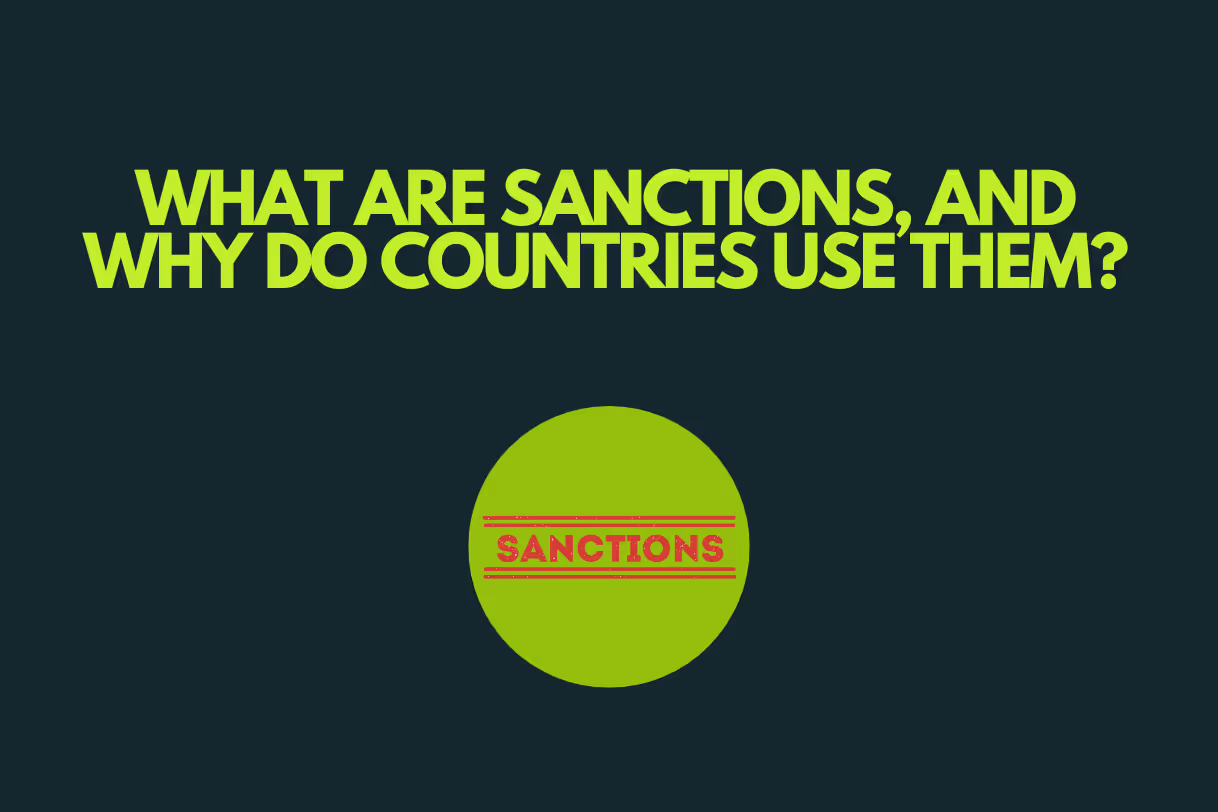
What Are Sanctions and Why Do Countries Use Them?
Understand what sanctions mean, why countries impose them, and how they impact compliance programs. Learn the sanctioned meaning with clear examples.
Sanctions have become one of the most important tools in international relations, financial regulation, and global security. Whether imposed by the United Nations, the United States, the European Union, or individual governments, sanctions are designed to influence behavior without resorting to military force.
This article explores what sanctions are, why countries use them, how they affect international business, and what they mean for compliance professionals who must ensure their organizations stay aligned with the law.
What Are Sanctions?
At the most basic level, sanctions are restrictions imposed by governments or international bodies to achieve political, security, or economic objectives. They can take many forms, from prohibiting trade with a particular country to freezing the assets of specific individuals or companies.
Instead of sending soldiers or engaging in open conflict, countries apply economic and financial pressure, hoping to influence the actions of states, groups, or individuals.
The sanction meaning is broader than just economic measures. Sanctions can include travel bans, arms embargoes, restrictions on financial transactions, and even limitations on technology exports. The sanctioned meaning, in turn, refers to an individual, company, or country that has been officially restricted by such measures.
Types of Sanctions
Sanctions are not one-size-fits-all. Different forms are used depending on the behavior being targeted and the effect governments hope to achieve.
- Comprehensive sanctions block most forms of trade and interaction with an entire country, such as the long-standing U.S. embargo on Cuba.
- Targeted or “smart” sanctions focus on specific individuals, organizations, or sectors, such as sanctions on oligarchs, terrorist groups, or energy industries.
- Financial sanctions freeze bank accounts, restrict access to international markets, and cut sanctioned entities off from the global financial system.
- Travel bans prevent individuals from entering certain countries or regions.
- Arms embargoes block the sale or transfer of military equipment.
Each type of sanction represents a different tool in the diplomatic and economic toolkit, and countries often combine them for maximum impact.
Why Do Countries Use Sanctions?
Countries impose sanctions for a variety of reasons, but they almost always serve as a way to exert influence without armed conflict.
- National Security: Sanctions are used to prevent adversaries from accessing resources or technologies that could threaten security. For example, restrictions on exporting advanced semiconductors aim to limit military or surveillance capabilities.
- Counterterrorism: Governments sanction individuals and organizations suspected of financing or supporting terrorism, cutting them off from financial systems.
- Human Rights Enforcement: Sanctions often target regimes or individuals accused of committing human rights abuses, such as repression, mass killings, or the persecution of minority groups.
- Non-Proliferation: Sanctions are used to prevent the spread of nuclear, chemical, or biological weapons by restricting trade in materials and technologies that could contribute to weapons programs.
- Punishment and Deterrence: When a country violates international norms—such as invading another sovereign nation—sanctions act as punishment and as a deterrent to others.
In short, sanctions provide governments with a way to signal disapproval, inflict costs, and shape international behavior without resorting to military force.
Who Gets Sanctioned?
When an entity is sanctioned, it means they have been officially restricted by one or more governments or international bodies.
- An individual may be sanctioned through travel bans, asset freezes, or prohibitions on doing business with them.
- A company may be sanctioned by cutting off access to global financial markets or banning the export of specific goods.
- A country may face comprehensive sanctions that limit trade, investment, and access to technology.
For compliance officers, the term “sanctioned” is particularly significant. If a bank, fintech, or multinational inadvertently deals with a sanctioned individual or entity, the penalties can be severe—including fines, license loss, and reputational damage.
Sanctions in Action: Real-World Examples
Understanding the sanction meaning becomes clearer with examples:
- Russia Sanctions (2022–2025): Following the invasion of Ukraine, the U.S., EU, and UK imposed sweeping sanctions on Russian banks, energy firms, oligarchs, and government officials. These sanctions limited Russia’s access to global capital markets and critical technology.
- Iran Sanctions: Iran has faced decades of sanctions related to nuclear proliferation, terrorism, and human rights abuses. These include financial sanctions that cut Iranian banks off from the SWIFT payment system.
- North Korea Sanctions: A mix of UN, U.S., and EU sanctions targets North Korea’s weapons program, restricting trade, freezing assets, and banning arms sales.
These examples illustrate how sanctions are used strategically, combining different types to maximize political and economic pressure.
How Sanctions Affect Businesses
Financial institutions, in particular, must check every customer, transaction, and counterparty against sanctions lists. Multinational corporations must ensure they are not inadvertently trading with embargoed countries or sanctioned entities.
Non-compliance can result in multi-million-dollar fines, loss of licenses, and public scandals. Even when violations are accidental, regulators rarely show leniency. As such, compliance programs must integrate sanctions screening at every stage of customer and transaction management.
Sanctions and Compliance Programs
Effective sanctions compliance requires more than just running names against a list. Programs must include:
- Automated screening systems to check customers and transactions in real time.
- Ongoing monitoring to capture updates when new individuals or companies are sanctioned.
- Adverse media checks to identify reputational risks tied to sanctions.
- Audit trails to demonstrate to regulators that screening decisions were documented and defensible.
In other words, compliance programs must evolve with sanctions regimes. Governments update lists daily, sometimes multiple times in a single day, and firms must be able to react instantly.
{{snippets-guide}}
Final Thoughts
Sanctions are one of the most powerful tools in international relations, serving as instruments of national security, counterterrorism, human rights enforcement, and deterrence. Understanding what sanctions are, the broader sanction meaning, and the practical sanctioned meaning is essential for businesses operating in today’s global environment.
For compliance officers, sanctions are not abstract concepts but daily operational realities. They determine how customers are onboarded, how transactions are processed, and how organizations demonstrate accountability to regulators.
At sanctions.io, we help firms navigate these complexities by providing automated sanctions screening solutions that keep pace with evolving lists and global requirements. With clarity, automation, and strong compliance processes, organizations can not only meet regulatory expectations but also protect themselves from the financial, legal, and reputational risks of dealing with the sanctioned.
sanctions.io is a highly reliable and cost-effective solution for real-time screening. AI-powered and with an enterprise-grade API with 99.99% uptime are reasons why customers globally trust us with their compliance efforts and sanctions screening needs.
To learn more about how our sanctions, PEP, and criminal watchlist screening service can support your organization's compliance program: Book a free Discovery Call.
We also encourage you to take advantage of our free 7-day trial to get started with your sanctions and AML screening (no credit card is required).



